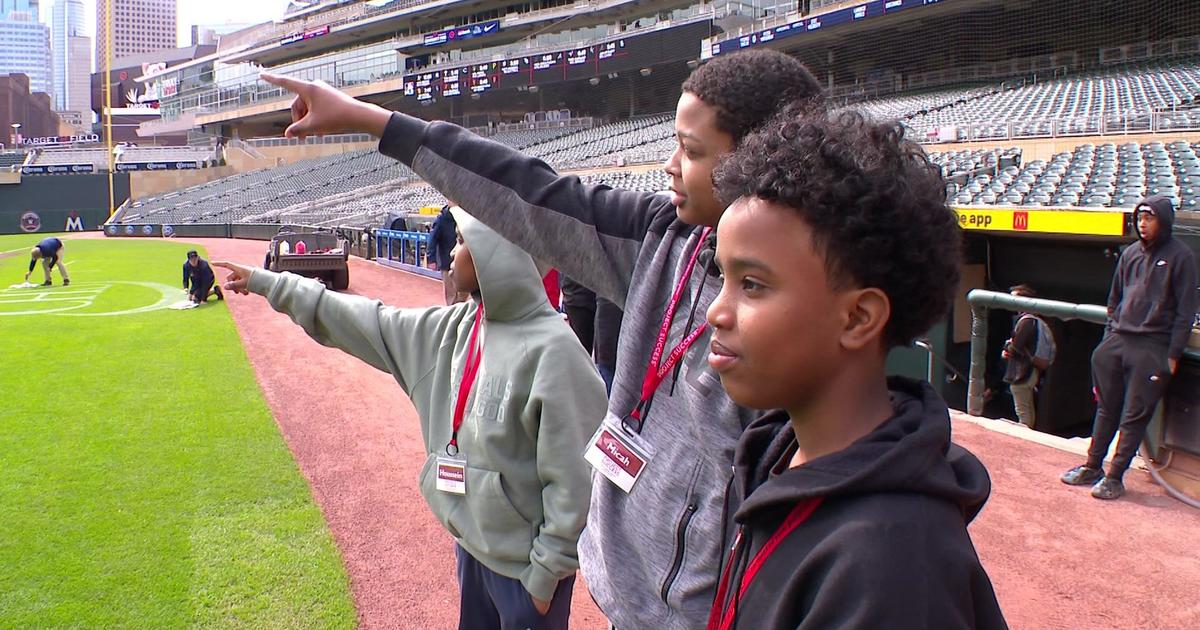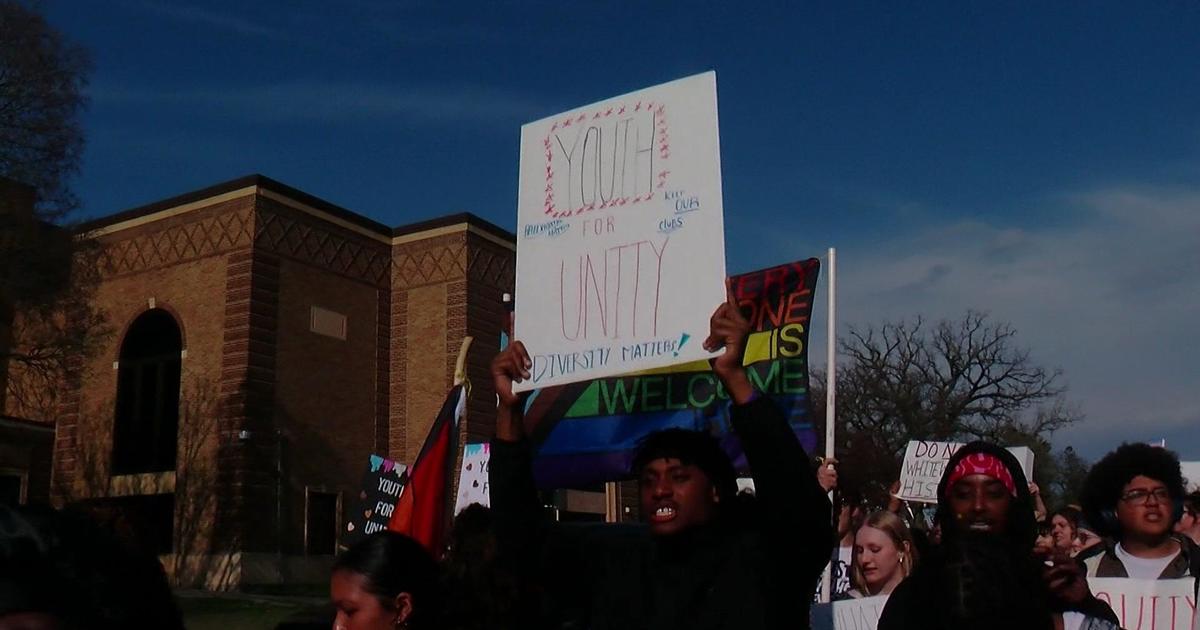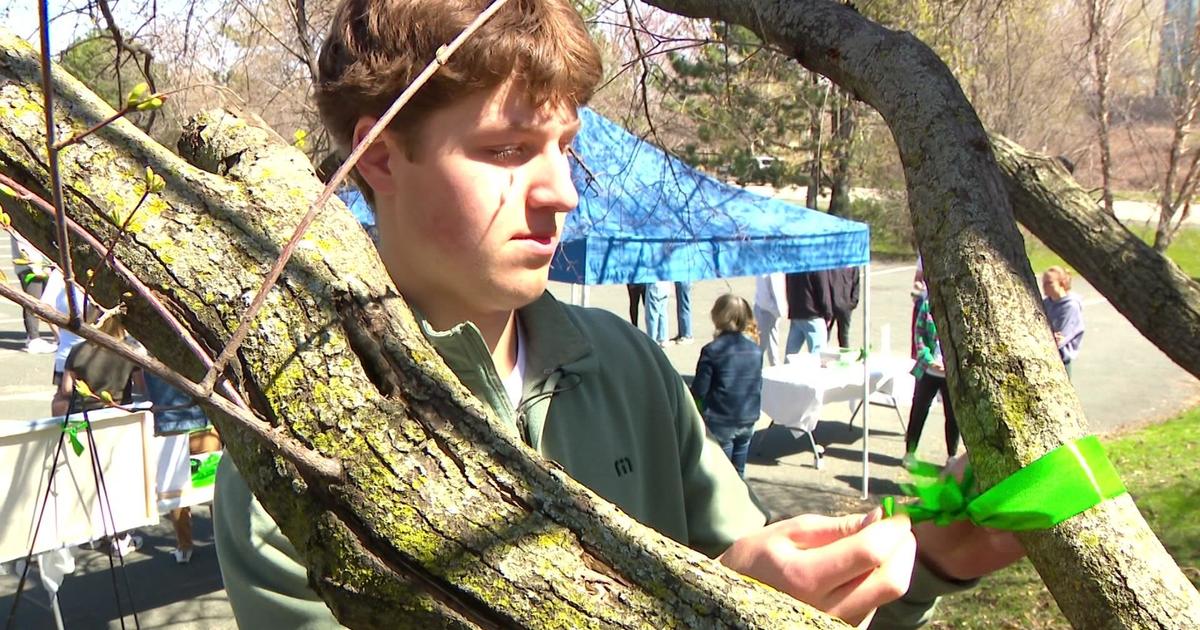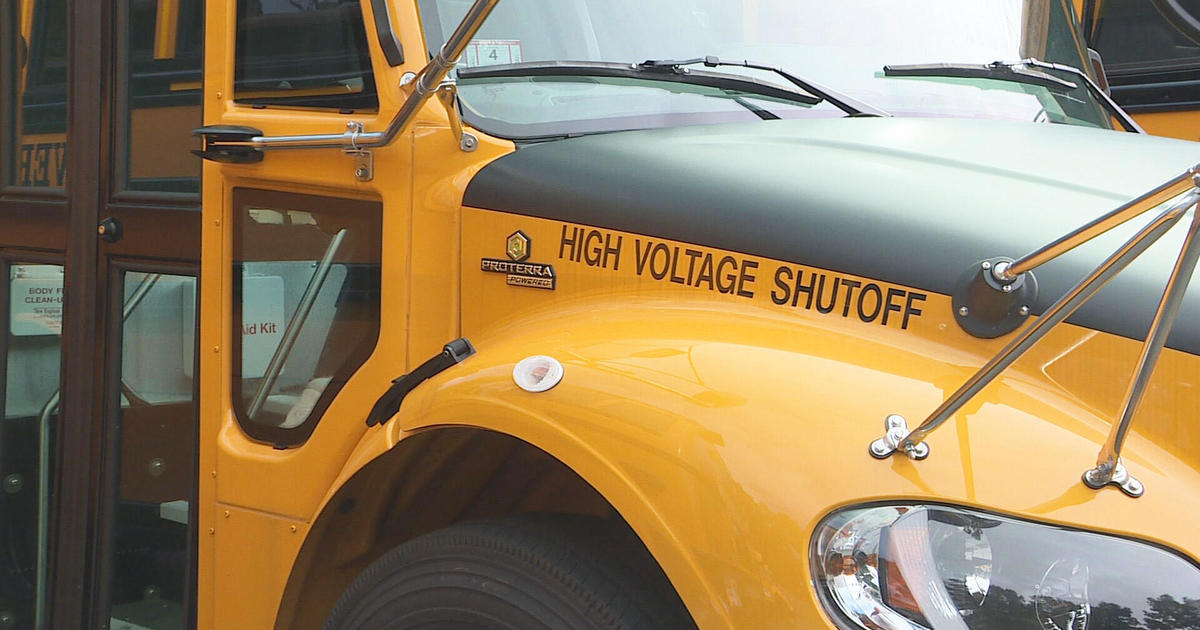More Schools Take Action To Stem Anti-Gay Bullying
LOS ANGELES (AP) -- A history teacher amends his lessons on the civil rights movement to include the push for gay equality. A high school removes Internet filters blocking gay advocacy websites. Six gay students sue their district, saying officials failed to protect them from bullies.
After anti-gay bullying led to a spate of teen suicides last year, school districts across the country are stepping up efforts to prevent such incidents, while more students are coming forward to report bullies.
"It's an issue that has taken over the public consciousness since last fall," said Jill Marcellus, spokeswoman for the Gay-Straight Alliance Network. "People realize it doesn't have to be this way. We can make it better."
Awareness of anti-gay bullying is increasing as acceptance of gay people has grown in society. Gay marriage is legal in several states, gays are now permitted to serve openly in the military and, in California, schools will soon have to teach gay-rights history.
Kids, even as young as middle school age, feel more emboldened to openly express their sexual or gender orientation, but many are not prepared for a possible backlash, gay-rights advocates say.
According to a 2009 survey by the Gay, Lesbian and Straight Education Network, 85 percent of gay teens reported harassment at school within the previous year and two-thirds felt unsafe at school because of their sexual orientation. The problem also extends to boys perceived as effeminate and girls deemed masculine.
"A lot of people have the idea that coming out as soon as possible will make themselves feel more comfortable," said Raymond Ferronato, a 16-year-old gay junior in Antioch, Calif. "I tell them come out when you're ready to come out, and only do it when you're safe."
Schools became aware last year of how unsafe it can be.
Five gay teens, ranging from middle school to college age, killed themselves in California, Indiana, Minnesota, Texas and New Jersey, after being bullied, in some cases for years. Last month, 14-year-old Jamey Rodemeyer killed himself in Buffalo, N.Y., after years of homophobic harassment.
In one case, the U.S. Departments of Justice and Education found the Tehachapi Unified School District in California violated the civil rights of 13-year-old Seth Walsh, who hung himself after relentless taunting and fruitless complaints to school officials. The district agreed in a July settlement to train staff and students how to prevent bullying, organize community meetings and form an advisory committee, among other steps.
Federal laws clearly uphold students' rights to express sexual orientation -- boys, for example, are legally allowed to wear skirts just as girls can wear pants -- and obligate schools to provide all students with a safe environment, but problems tend to arise on a social level, often outside the classroom.
The California trial of 17-year-old Brandon McInerney, charged in the 2008 classroom killing of 15-year-old Larry King, showed how a school fulfilled the law by upholding a boy's right to wear makeup and high heels, but grappled with the social fallout -- bullying of King and King's response, which was to aggressively flaunt his sexual orientation, including flirtatious and harassing comments to boys.
One of them, McInerney, then 14, is accused of shooting King to death in a classroom. After an August trial ended in a hung jury, prosecutors now plan a second trial.
Testimony from several teachers showed they struggled to cope with escalating tension between King and his bullies, while also respecting his civil rights.
School districts across the country are now training teachers and students in techniques to stop bullying.
For example, instead of a teacher simply telling kids to quit using a disrespectful name, stopping taunts is more effective when the teacher explains why teasing hurts and getting bullies to recall instances when they were taunted or acknowledge that they would feel hurt if they were, experts said.
"It's about making them realize what it's like," said Travis Brown, an anti-bullying speaker now on a 200-school tour.
Students must be told to intervene if they witness bullying and to accept others' differences even if they don't agree with them. That goes for teachers, too. It is illegal, for instance, to order a boy to wash off makeup if girls are also allowed to wear it.
For bullying targets, students should not respond with aggression, but to stand up for themselves by reporting incidents and filing complaints. "It's important to take a stand, not fight back. If they fight back, they're subject to the same repercussions as the bullies," Brown said.
Schools are also shoring up anti-bullying training with peer leadership programs that encourage students to stand up for bullying targets.
Paloma Valley High School in southeastern California instituted such a program as well as teacher workshops and student assemblies, after a gay student complained about a teacher writing "S" for sinner on her hand. Another student said he was unfairly punished for responding to a bully's taunts, while the Gay Straight Alliance was told it could not make announcements during gay history month.
Students at some schools say efforts are paying off.
In Central California, high school senior Kira Garcia said she could no longer idly stand by while witnessing gay friends being taunted and joined her school's Gay-Straight Alliance as a straight ally. As more kids have joined the alliance and become more active in speaking out, she said, she's noticed a drop-off in name-calling.
At San Juan Hills High School in San Juan Capistrano, Calif., transgender senior Benji Delgadillo requested his history teacher include gay people in lessons and the movement for equality in the civil rights unit. "At first, he was a little hesitant, but then he agreed," he said. "He amended the Power Point that day."
Delgadillo also got a "Battle of the Sexes" event stopped after pointing out its sexist nature to the principal.
Despite growing awareness, there's a long way to go.
Six gay students sued the Anoka-Hennepin, Minn., school district in recent months over its "neutrality" policy on anti-gay bullying, saying the policy effectively licenses bullies. The Justice Department is investigating the policy after the suicide of a 15-year-old student.
The American Civil Liberties Union-Southern California, which launched the Seth Walsh Project to advocate for gay students last year, is investigating a number of schools where students have complained of anti-gay discrimination and bullying.
In one case, it prodded the Rowland Unified School District on the outskirts of Los Angeles to stop blocking pro-gay content on the Internet. The district said it was blocked by accident and removed the filters.
James Gilliam, ACLU director, said he's encouraged, however, that more students are stepping forward to make complaints. "Students not reporting bullying is the number one issue," he said. "We know they're being bullied."
(© Copyright 2011 The Associated Press. All Rights Reserved. This material may not be published, broadcast, rewritten or redistributed.)



